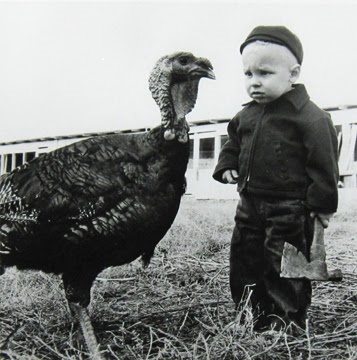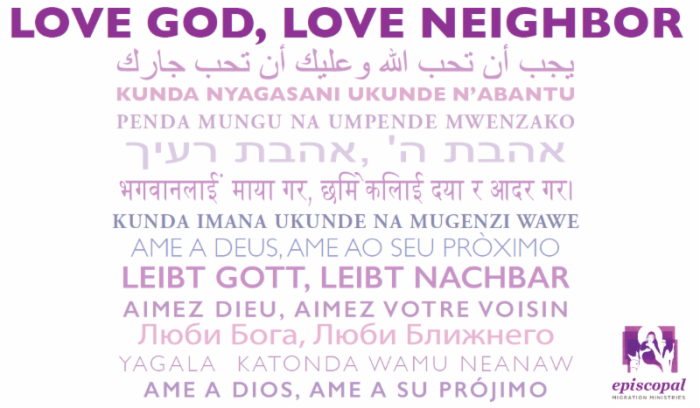Giving Thanks
By Charles Peek
In thanksgiving for the Kearney Action Network and its allies
You may at least vaguely recall the biblical story of Jesus healing 10 lepers. They are often portrayed as then leaping away in joy, on their way we’re told to perform the temple ritual that will allow them to end their quarantine and rejoin their loved ones. Who would do otherwise? What a perfectly wholesome and natural reaction. It’s the way we feel when we’ve been healed.
As they run off, however, one hurries back to Jesus to give thanks and, moved by his gesture of thanksgiving, Jesus tells him his faith has made him well.
![]()
Icon of the Healing of the Ten Lepers
Jesus doesn’t say this to or about the other nine, so presumably neither what he means by wellness nor what he calls faith was at all involved in the original cure from leprosy. Rather, the one who gave thanks received a second blessing, a different sort of healing. He did something different and he got something extra.
So, apparently, there is wisdom in the Spanish term for Thanksgiving: El Dia de Accion de Gracias. Accion! Action! Doing something, something more.
We should be sure we are clear here. Nothing in the parable says anything about the other nine being ungrateful, and it is inconceivable that they weren’t grateful, so the story is a lesson in the difference between BEING grateful—a good thing in itself—and GIVING thanks.
If the greatest sign of being thankful is accepting the gift and resuming life, the sign of giving thanks is an extra effort, an action, in this case, the coming back. The One differs from the Nine by doing something beyond merely being thankful.
I don’t doubt that many people are thankful for many things, for blessings for which they have never actually GIVEN thanks. They’ve done the first best thing you can do with a gift and that is accept it. The first best thing is only a beginning, however, not a finishing line. Stopping merely at how we feel will very likely mean that, as seems so common today, we will tend to take our blessing for granted and then feel cheated of something that is our due if a blessing doesn’t come our way or doesn’t last as long as we’d like.
I’ve written before that somewhere in the mid-70’s I began to feel the ground swell of fairly fortunate people who didn’t feel they ever received their just desserts. It was always a mystery to me, probably because, personally, I’m often most grateful that I haven’t received mine! But what began at least 40-50 years ago, has grown into a political and social ground-swell of whining from the fortunate.
And perhaps we should be clear about something else, too. There have always been lots of angry preachers who preach an angry God—on this soil, sadly, that has a long lineage and, even more sadly, a large posterity. Given that element in the American grain, it’s probably worth noting that Jesus didn’t revisit leprosy on the nine who didn’t return to give him thanks—they got their healing, the healing that comes from love, the love that doesn’t cease just because it isn’t fully received.
The Nine did, however, miss out on something at least according to the Gospel (Luke 17). They missed their chance for something more, some wholeness, some transformation that comes when we stop taking our blessings for granted, when we begin to feel like we’d like to become active participants in our own blessing, in our own wellbeing.
I’m writing of this as we approach our national observance of Thanksgiving. We speak the English name of the holiday so glibly that we probably don’t pay enough heed to how our word, too, suggests something more than the cheap grace of merely feeling grateful.
Yet, this particular Thanksgiving occurs when many Americans are wondering how the blessings of national life we took far too much for granted can ever be restored, how the exponential rise of bragging and bigotry, of bluster and twitter, of sexual predation and racial provocation can come to an end, how we can once again set ourselves to trying to become a people united around solving our common problem and helping others solve theirs.
Many of us have been jolted into feeling we ought to do something to help the Republic heal, sensed that we ought not simply feel blessed but give thanks, give ourselves to such actions as will be a fitting return for having been so long blessed.
For this, I don’t think the current kind of “rah-rah America is the greatest country in the world” patriotism will do. I find suspect any patriotism that attaches itself to a country’s greatness. Most people who love their country love a country that is far from great, and our vaunted greatness is too often proclaimed in ignorance of other country’s virtues, too often a whistling as we pass the cemetery.
And perhaps part of giving thanks is doing something about those ways in which we aren’t so great. Unless, of course, we are proud of having more violent deaths, a higher percentage of people incarcerated, shameful numbers of unsatisfactory schools, and the highest ratio of citizens with limited access to adequate health care or housing of any industrial nation.
In other words, lip service is no service at all. Bishop Tutu reminds us, “When the missionaries came to Africa they had the Bible and we had the land. They said, ‘Let us pray.’ We closed our eyes. When we opened them, we had the Bible and they had the land.”

Let’s Talk Turkey (Museum of Nebraska Art)
So, today, rather than urging us to even further specious piety, I’m going to simply present a number of quotes that have come my way this year, quotes that helped me see my responsibilities more clearly, see my part in how we’ve gotten where we are and my part in how we might do better, quotes that might encourage us beyond mere gratitude to actual thanksgiving, actually getting active in giving our time, talent, and treasure, finding something to do with our blessings beyond simply enjoying them, seeing that our blessings are shared by others.
First, three thoughts about not taking action, responsibility:
No one can terrorize a whole nation, unless we are all his accomplices. (Edward R. Murrow, journalist; 1908-1965)
At heart, we’re all a bunch of slightly more evolved apes, some of which want all the bananas. We still revere and fear the alpha male, either electing him to office, or projecting him into the sky, a celestial bully to back us when we want to take away someone else’s bananas. (Anonymous reply to a David Brooks column)
Man has been given to understand
that he lives only by the grace of those in power.
Let him therefore busy himself sipping coffee, catching butterflies.
Who cares for the Republic will have his right hand cut off.
(Czesław Miłosz, “Counsels”)
And, then, three thoughts about perspective:
I asked a man in prison once how he happened to be there and he said he had stolen a pair of shoes. I said if he had stolen a railroad, he would be a United States Senator. (Mother Jones)
Ignorance, allied with power, is the most ferocious enemy justice can have. (James Baldwin, writer; 1924-1987)
I am patient with stupidity but not with those who are proud of it. (Edith Sitwell, poet; 1887-1964)
A couple of thoughts about what makes our actions urgently needed:
Sometimes you meet, coming down the leafy path along which you are walking, a man dressed as Napoleon; as he talks to you, you look at him with distrust, pity, and amusement – carefully do not look, rather. But as the two of you walk along, and people come up with wallpaper designs full of Imperial bees, rashly offer their condolences on the death of the duc d’Enghien, ask for a son’s appointment as Assistant Quartermaster General of the army being sent to the Peninsula, you realize that it is not he but his whole society that has ‘lost touch with reality.’ (Randall Jarrell, from ‘Pictures from an Institution,’ III.3)
Judging from their mug shots, white nationalism seems to hold a special appeal for disheveled alcoholics, repressed jackboot fetishists and guys who might keep their mothers taxidermied in the basement. (David Von Drehle)
Some challenges as to what we will need to be willing to give:
Activism is not a journey to the corner store; it is a plunge into the unknown . . . A game of checkers ends. The weather never does . . . History is like weather, not like checkers. (Rebecca Solnit, from her Hope in the Dark, Untold Stories, Wild Possibilities)
“As a teacher, she often asked her students to memorize 30 to 40 lines of poetry a week so that they grew familiar with the sound of poetry. She said: ‘The other reason, as I tell their often stunned faces, is to give them an internal library to draw on when they are taken political prisoner. For many, this is an unthinkable concept; they simply do not believe in anything fervently enough to go to jail for it.’” (Garrison Keillor), writing about poet Maxine Kumin)
Lastly, thoughts to encourage us:
I think of a hero as someone who understands the degree of responsibility that comes with his freedom. Bob Dylan, singer-songwriter, Nobel laureate (b. 24 May 1941)
First they ignore you, then they laugh at you, then they fight you, then you win. Ghandi
Hope these make you think, just as they have made me think—think and enjoy a Happy Thanks GIVING.

Kearney, Nebraska
November 15, 2017